Freddy Purcell–
This article idea was born out of my greatest regret (academically speaking at least) from first year being that I didn’t speak to my lecturers more in their office hours or after lectures. I was either too busy thinking about other stuff for it to occur to me, or I wasn’t sure what I would say if I did find them. Occasionally I did speak to the lecturers for essay advice, but I feel certain that I would have found greater joy in my work if I had sought the lecturers out more.
To help prevent people from doing the same thing as me, I emailed every philosophy lecturer over the summer asking them three questions that I hope will show them to be normal and highly approachable people. Many other students will already know plenty about their lecturers and need no encouragement to go and speak to them. For these people, I hope this is just a fun read.
For more information on the lecturers’ research or good things like their office hours click here.
Disclaimer: I have put the lecturers that teach first year modules first, but beyond that, they appear in no particular order. This is not a tier list.
Dr Tom Roberts (Philosophy Degree Director)

Modules taught:
Philosophies of Art, Philosophy of Mind, Aesthetics, Epistemology, Current Issues in Mind and Cognition (MA).
What is your favourite quote?
“Make it new” (Ezra Pound, 1934). The guiding imperative of the imagist poets, who teach us to cast off the old, embrace the modern, the novel, the surprising!
What are your current main areas of academic interest?
I have two main projects on the go at the moment. First, I’m thinking about what sorts of attitudes we entertain when we have a conversation with an AI speaker like ChatGPT. Do we really believe that we’re talking to another intelligence, or do we just pretend that we are? Why might it matter? Second, I’m examining how issues of power, justice, and responsibility can emerge in the aesthetic domain – that is, in the world of art, performance, and appreciation.
What is a “fun” fact about you?
I play the accordion (sometimes in a “band” with other members of the Philosophy staff; in a secret location).
Dr Jonathan Davies
Modules taught:
Knowledge and Reality 1, Introduction to Philosophical Analysis, Philosophical Reading 1, Symbolic Logic, Plato’s Dialogues.
What is your favourite quote?
Two quotes from my favourite (and the funniest) philosopher, Douglas Adams. 1. “I’d far rather be happy than right, any day.” 2. “Time is an illusion. Lunchtime doubly so.”
What are your current main areas of academic interest?
I am currently reading a lot of Plato. But I also like metaphysics, and the philosophy of science.
What is a “fun” fact about you?
My main hobby is music. I like to shut myself in a soundproofed room and make an ungodly racket.
Professor Adrian Currie
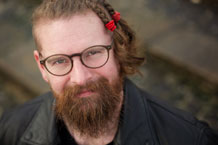
Modules taught:
Philosophical problems 1, Philosophical Frontiers, The Deep Past History and Humanity.
What is your favourite quote?
“If you want to make an apple pie from scratch, you must first invent the universe” – Carl Sagan
What are your current main areas of academic interest?
I do the philosophy of dinosaurs (seriously).
What is a “fun” fact about you?
I have performed a choreographed dance dressed like a chicken in front of approximately 30,000 people.
Dr Shane Glackin
Modules taught:
Philosophy of Morality, Philosophy of Language, Philosophy of Law.
What is your favourite quote?
“It depends on you,” Titus said. “But a saint named Gus once said, ‘Nulla est homini causa philosophandi, nisi ut beatus sit.'”
“For shame!” I said. “Did they wash his mouth out?”
Titus smiled. “It means ‘Man has no reason to philosophize, except with a view to happiness.'”
I took another swig. “You sure it’s better’n this stuff?”
Titus took a swig too. “If it’s not,” he said, “I’ll buy you another bottle…” (David James Duncan, The River Why)
What are your current main areas of academic interest?
Currently: Philosophy of Medicine; Philosophical Methodology; Metaethics.
What is a “fun” fact about you?
In my spare time I build guitar pedals, ride bikes in the mountains, and change nappies.
Professor Giovanna Colombetti
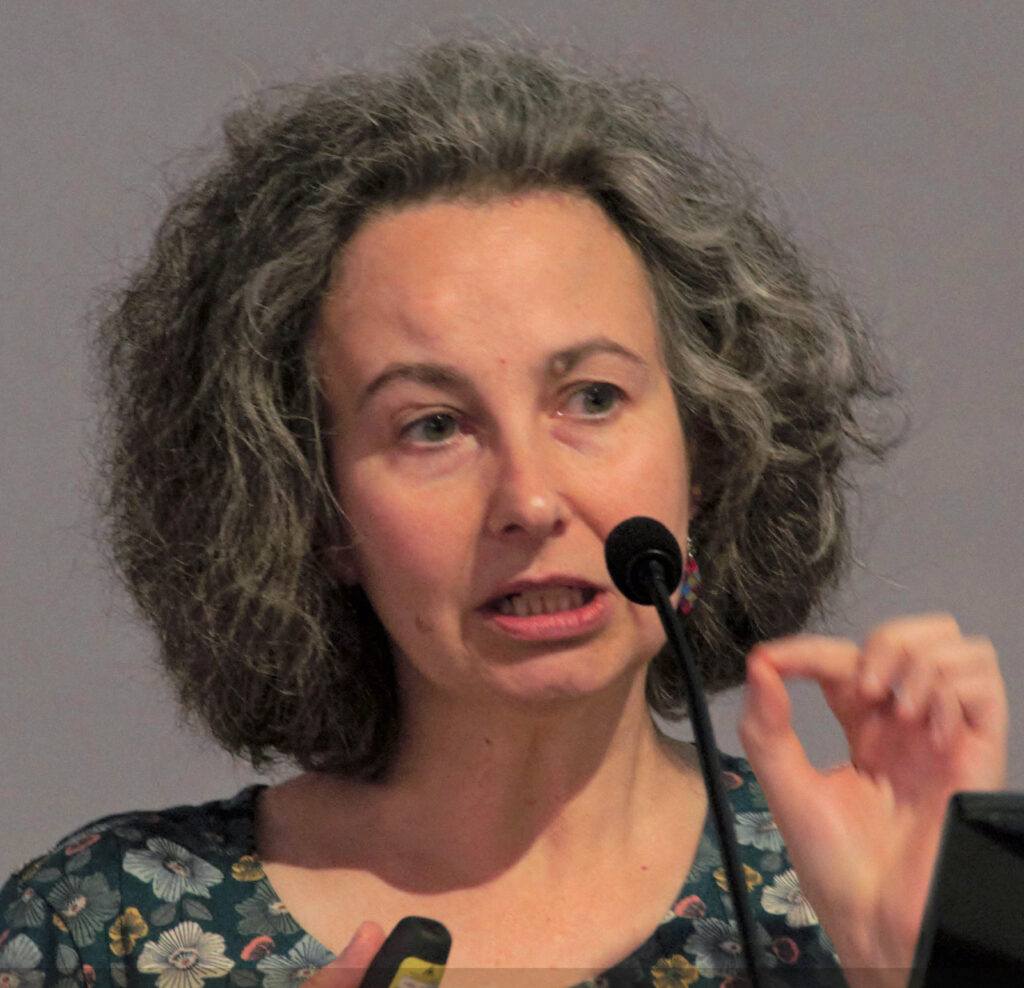
Modules taught:
Introduction to Asian Philosophy, Mind Body and World (MA).
What is your favourite quote?
“Where everything is already complete, there is no fulfilment” (John Dewey)
What are your current main areas of academic interest?
Embodied; situated cognition and emotion; affectivity; material culture.
What is a “fun” fact about you?
I like to hike, play the piano, and practice tai chi and qigong.
Professor Joel Krueger
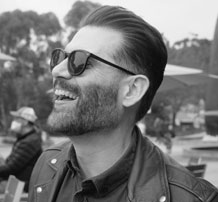
Modules taught:
Knowledge and Reality 2, Body and Mind, The Self, Mind and World in Contemporary Japanese Philosophy.
What is your favourite quote?
“Be patient toward all that is unsolved in your heart and try to love the questions themselves, like locked rooms and like books that are now written in a very foreign tongue […] Live your questions now, and perhaps even without knowing it, you will live along some distant day into your answers.”
Rainer Maria Rilke, Letters to a Young Poet (1929)
What are your current main areas of academic interest?
At the moment, my main areas of philosophical interest/research are philosophy of psychiatry/phenomenological psychopathology, and philosophy of AI (emotions and AI; AI and artistic creativity; AI and the extended mind thesis).
What is a “fun” fact about you?
A fun (or rather, sad) fact: I won a spelling contest when I was eight years-old, and my spelling ability has not progressed since then.
Dr Ed Skidelsky
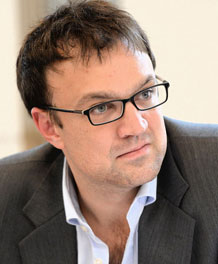
Modules taught:
Evidence and Argument, Philosophy of Film, Virtues and Vices, Aristotle’s Ethics.
What is your favourite quote?
“It is always a significant question to ask about any philosopher: what is he afraid of?” (Iris Murdoch)
What are your current main areas of academic interest?
I am interested in how the language of morality – rights, justice, virtue etc – has evolved over time; I am writing a book exploring this in detail.
What is a “fun” fact about you?
I have a morbid interest in tombstone epitaphs. This originally grew out of my academic interest in moral change – see above – but has now taken on a life of its own. Have a look at my website on the subject: epigraphs.net.
Professor Robert Lamb (Head of Sociology, Philosophy and Anthropology)
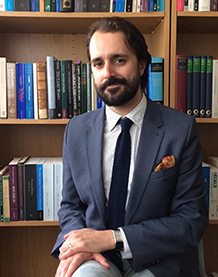
Modules taught:
Political Thought of Modernity, Hope and Politics.
What is your favourite quote?
Always strive to excel, but only on weekends’ – Richard Rorty.
What are your current main areas of academic interest?
I’m currently writing a book (which I’ll hopefully finish before the end of 2024!) on the meaning and value of hope as a political attitude.
What is a “fun” fact about you?
I have seen every episode of the 1970s American television programme, Columbo.
Professor John Dupré
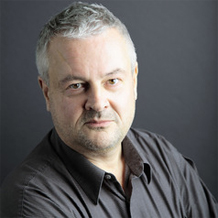
What is your favourite quote?
I don’t think I have a favourite quote. The saying I use most is probably :”if you have a hammer everything looks like a nail”, which I think is the occupational hazard of philosophers. We tend to have a favourite idea that we love to shoehorn problems into. Or perhaps Heraclitus’ famous if probably apocryphal line “Everything Flows”, which I did use for a book title. There are some much longer quotes I use a lot, but with any explanation they would be much too long.
What are your current main areas of academic interest?
I’m a philosopher of science, mostly biology, and a naturalistic metaphysician—you could call it philosophy of nature. The focus of my work for quite a few years is on process ontology, both as the best account of nature and as the best way of doing biology.
What is a “fun” fact about you?
I am a keen player of the viola da gamba. I studied this rather exotic musical instrument for two years at the Guildhall School of Music in London before deciding finally to do philosophy.
Editor’s note: Another interesting fact about Professor Dupré is that he founded Exeter’s philosophy department when in restarted in 2000.
Professor Adam Toon
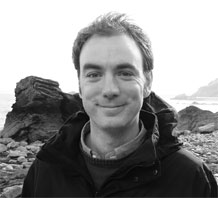
Modules taught:
Philosophy of Science, Introduction to Philosophical Methods (MA).
What is your favourite quote?
“Both Idealism and Materialism are answers to an improper question” (Gilbert Ryle, The Concept of Mind)
What are your current main areas of academic interest?
Philosophy of science (e.g. the nature of representation) and philosophy of mind (e.g. the nature of thought).
What is a “fun” fact about you?
In my spare time, I enjoy working on our allotment. I don’t enjoy following Derby County Football Club, but I do it anyway.
Dr Nigel Pleasants
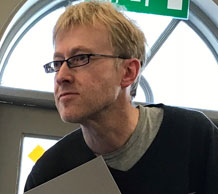
Modules taught:
Moral Agency in Social Context.
What is your favourite quote?
‘If we take eternity to mean not infinite temporal duration but timelessness, then eternal life belongs to those who live in the present’ (Wittgenstein).
What are your current main areas of academic interest?
Moral change, moral progress, moral disagreement; Wittgenstein and ethics; philosophical issues arising from the Holocaust and genocide; animal ethics.
What is a “fun” fact about you?
I left school at 16 and began my degree (philosophy and sociology at Bristol) 10 years later.
Dr Stephan Guttinger
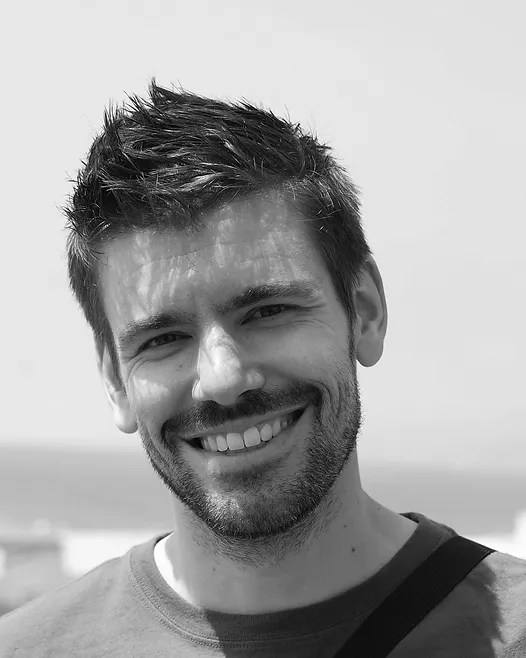
Modules taught:
Practical Ethics, Philosophy of Medicine, Data Governance and Ethics (MA)
What is your favourite quote?
“Ever Tried. Ever Failed. No matter. Try again. Fail again. Fail better.” Samuel Beckett.
What are your current main areas of academic interest?
Currently I am interested in two questions: first, how will the increasing automation of scientific research (especially in the laboratory) affect knowledge-generation? Second, how can we build a more democratic science that is truly participatory?
What is a “fun” fact about you?
I have a freakishly good spatial memory – you could abandon me in a desert and I would find my way home. But I am absolutely rubbish at remembering faces/names. That does not help with teaching: I will always find the room, but I will have no clue who is in it!
Dr Sam Wilkinson
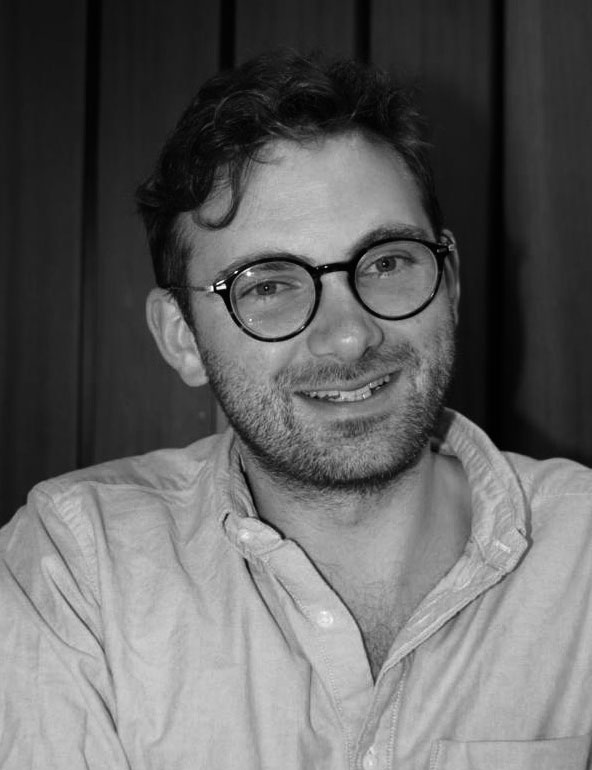
Modules taught:
Philosophy of Psychiatry, The Nature of Normativity.
What is your favourite quote?
“It’s so easy to laugh, it’s so easy to hate. It takes strength to be gentle and kind.” from I Know it’s Over by The Smiths.
What are your current main areas of academic interest?
Philosophy of mental health. We all have problems. But when is a problem a mental health problem?
What is a “fun” fact about you?
I secretly listen to techno. Almost constantly.
Dr Celso Alves Neto
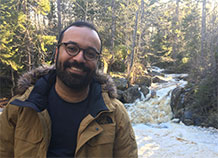
Modules taught:
Animal minds and animal ethics, Philosophy and Sociology of Race, Knowledge Human Values and Anti-Science.
What is your favourite quote?
One of my favourite quotes is attributed to the philosopher Wilfrid Sellars, according to which philosophy concerns “how things in the broadest possible sense of the term hang together in the broadest possible sense of the term.” This quote is so vague that it raises more questions than answers and it invites us to interpret philosophy in various ways!
What are your current main areas of academic interest?
I am interested in the relationship between science and ethics. A long tradition in philosophy makes a sharp division between these areas, but now we know that science is full of ethical assumptions and consequences. I investigate these assumptions and consequences. In particular, I look at how biological sciences might involve controversial ideas about human races.
What is a “fun” fact about you?
I am from Brazil and, as many kids there, I wanted to be a football player growing up. My “career” ended when I started focusing on musical instruments and books. I played in several punk bands ever since.
Dr Alexander Badman-King
What is your favourite quote?
‘sunt lacrimae rerum et mentem mortalia tangunt’. (‘here there are the tears of things, and mortal things touch the mind’ or, perhaps, more stylistically, ‘here they understand the tears of things and are touched by mortal fragility’) Virgil, Aeneid, 1:462
What are your current main areas of academic interest?
I have no single or current area of academic interest as such. It seems to me that philosophy, when correctly understood and practised, is a method for living life, a way to try to be a good person by better understanding the world. Yes, I am a teacher, and sometimes I try to write something which I think might be useful for someone else interested in what I have to say, those two things seem, to me, to be the same sort of thing. So, I don’t differentiate my ‘professional’ life from the rest of my life, nor do I see any meaningful division between teaching and ‘research’. It should also be said that, as far as I can tell, the extent to which academics take themselves and their specialisms far too seriously is (all too often) a kind of disease and one which I would rather avoid. Since I understand philosophy to be an inherently ethical thing, I try to apply my teaching/’research’ time to those topics which seem most ethically pressing to me, or where my insights might prove most fruitful, to that end I tend to focus a lot on human interactions with non-human beings. Sadly, humans have a tendency to neglect (or outright oppose) the interests of other beings and I try to spend my time tackling that problem. So, some people might say that ‘animal ethics’ is my speciality, and if I am going to fit into the usual way of thinking about a professional academic (if I must) then I suppose that will do. It should also be said, however, that environmental ethics, philosophical anthropology, the ethics of AI, the philosophy of permaculture, classical ethics, moral realism, systematic theology and quite a few other things are very much still in my wheelhouse.
What is a “fun” fact about you?
I am perpetually frustrated by the way in which animation is viewed as a lesser artform. I think Adventure Time is quite probably a work of genius on par with humanity’s other greatest works of art; it would not be wrong to speak of its brilliance in the same way you might speak of Shakespeare.
Dr Kirsten Walsh

Modules taught:
Philosophical Research, History of Philosophy, Hidden Voices in Early Modern Philosophy.
What is your favourite quote?
“Nothing degrades as much as the steps one takes to regain a cold or inconstant heart.” (Emilie Du Châtelet, Discourse on Happiness, c.1746)
What are your current main areas of academic interest?
Most of my research concerns early modern science, and Isaac Newton’s work in particular. At the moment, I’m interested in Newton’s notion of ‘proof by experiments’. I have a theory that, for Newton, the probative force of an experiment lies in experience—someone must materially enact the experiment in order to grasp the proposition it supports. This idea has led me to explore various concepts in other branches of philosophy, such as aesthetics and philosophy of mind, and to collaborate with various philosophers, including Tom Roberts and Adrian Currie.
What is a “fun” fact about you?
I once recorded with the Melbourne Symphony Orchestra!
Dr Astrid Schrader

Modules taught:
Feminist Philosophy: Gender Race and Class, Cyborg Studies.
What is your favourite quote?
From Lewis Caroll :’It’s a poor sort of memory that only works backwards (for context: Alice remarked. ‘I can’t remember things before they happen. ‘ ‘It’s a poor sort of memory that only works backwards,’ the Queen remarks.
What are your current main areas of academic interest?
I am in Science and Technology Studies and study how scientists are trying to make sense of weird behaviors of microbes. This leads me to think about time, agency, responsibility and care in science. Other important concerns are human-animal differences and the impact of technologies on what’s considered human ‘nature’. I also deeply care about environmental justices and injustices.
What is a “fun” fact about you?
I can stand on my head! (I am training to become a yoga teacher).
Dr Tyler Brunet
Modules taught:
Metaphysics.
What is your favourite quote?
“When one is young, one venerates and despises without that art of nuance which constitutes the best gain of life, and it is only fair that one has to pay dearly for having assaulted men and things in this manner with Yes and No.” from Aphorism 31 of the Free Spirit in Beyond Good and Evil by Nietzsche.
What are your current main areas of academic interest?
My research is split into two central areas: the philosophy of biology and logic. In the philosophy of biology I am very interested in non-Darwinian modes of explanation, and how these affect our judgements of the fitness and function of organisms and higher level biological kinds (e.g. populations or ecologies). In logic I am mostly working on modal logic, and trying to use tools from category theory in modal semantics.
What is a “fun” fact about you?
I am trying to learn to paint and to play the viola. Both most unsuccessfully, at this point.
Professor Christine Hauskeller
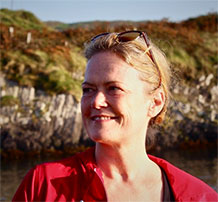
Modules taught:
Critical Theory: The Frankfurt and Communicative Capitalism, Philosophy and Psychedelics, Contemporary Ethics (MA).
Editor’s note: Professor Hauskeller is currently on academic leave so wasn’t available to answer my questions, as soon as she is back, I hope to finish this profile.
